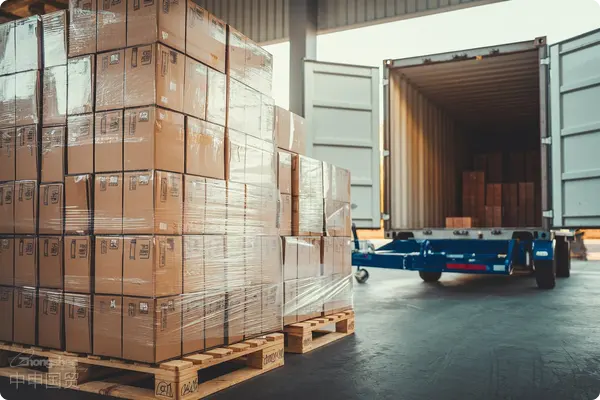- Shanghai Zhongshen International Trade Co., Ltd. - Two decades of trade agency expertise.
- Service Hotline: 139 1787 2118
As Indonesias so-called customs clearance red light period approaches from year-end to early next year, many traders intending to export to this Southeast Asian giant are already on high alert. Several industry players with prior export experience to Indonesia have pointed out that the red light and green light classification by Indonesia Customs has long been an unwritten rule locally. Once exported goods are deemed to be in the red light period, clearance times will be significantly extended, with goods potentially detained at customs for months - this is no exaggeration. During this time, strict customs inspections and additional procedures may subject companies to multiple pressures including extra fees, increased storage costs, and goods depreciation. For unprepared foreign trade practitioners, this is akin to navigating a narrow bottleneck.foreign tradeIndonesias red light period mostly occurs between December and March of the following year. During this time, Indonesia Customs and other law enforcement agencies jointly conduct strict inspections on imported goods to protect domestic industries from foreign competition. Industry insiders reveal that this special policy is closely related to Indonesias local industry support policies, where authorities implement stricter controls on certain imported product categories to curb the impact of low-priced imports on local manufacturers. Over the past year, the Indonesian government has unprecedentedly strengthened controls on imported goods, particularly textiles, electronics, ceramics, and other consumer products. Throughout this year, Indonesian authorities have repeatedly seized and destroyed large quantities of allegedly illegally imported goods. Comparative data shows huge discrepancies between exporting countries records of exports to Indonesia and Indonesias local import records, directly prompting Indonesia to intensify crackdowns to reduce trade deficits and unfair competition.

In June this year, Indonesias Ministry of Trade announced plans to impose safeguard tariffs of 100% to 200% on imported products ranging from footwear to ceramics, reviving measures to protect domestic industries. This move already sounded an early warning at the time, making companies with export plans to Indonesia aware that customs clearance difficulties were increasing. In July, Indonesia formally established a special task force to crack down on illegal imports, strengthening supervision over key commodities such as textiles and textile products, electronics, footwear, apparel, ceramics, and beauty products. In October, Indonesias Ministry of Industry intervened again, mandating Indonesian National Standards (SNI) for 16 industrial products. These overlapping measures have caused major Indonesian ports to enter a red light state during year-end, with inspection intensity significantly increased at major terminals and storage points.
Despite the severe situation, Indonesias market potential as Southeast Asias largest economy and most populous country should not be underestimated. Foreign trade businesses should not easily abandon their decisions but must be more cautious. Besides ensuring full payment collection before shipment, they need to repeatedly confirm and communicate with local Indonesian partners or agents about product categories, quantities, and special requirements, staying updated on the latest customs policy changes and import thresholds. Notably, many local Indonesian companies have varying import rights qualifications. Some importers may have Import License (API) and Master List but this doesnt guarantee smooth customs clearance. When operations are improper or importers have limited qualifications, the probability of inspections increases. In such cases, experienced practitioners recommend adopting DDP (Delivered Duty Paid) operations, where capable import agents handle the entire clearance process, which can somewhat mitigate risks arising from unfamiliarity with local policies.Cosmetics & Personal CareMeanwhile, experienced exporting companies encourage applying for 14-day free demurrage periods when booking space with shipping companies to prevent soaring container rental costs due to prolonged customs clearance. After goods arrive in Indonesia, tax payment procedures must be completed within 30 days, otherwise overdue storage may result in goods being sent to relevant regulatory warehouses, with goods unprocessed after 1-3 months potentially being auctioned. Strict regulations require exporters to conduct comprehensive reviews at every pre-shipment stage, ensuring that packing lists, invoices, bill of lading copies, and other documents strictly match the actual containerized goods. In Indonesia, penalties for discrepancies between goods information and documents are astonishingly high. Abbreviations or omitted details might be barely acceptable in other markets, but in high-risk controlled markets like Indonesia, meticulousness must be enhanced, with goods details marked as completely and accurately as possible.
After 2016, Indonesia has also tightened inspection standards for certain products. Categories such as LED lights, used machinery, used equipment, and textiles require SGS inspection before container loading. This process, applied for in the exporting country, requires carriers to schedule pre-loading inspections. If certificates are successfully obtained, customs clearance difficulties upon arrival in Indonesia will be significantly reduced. Professional agents play a key role at this stage, helping review all certificates and documents before shipment to eliminate potential customs clearance obstacles in advance. Through rigorous preparation and multi-party assistance, exporters can maintain business viability even in harsh environments.Import RepresentationAnother aspect requiring special attention is the verification risk of Indonesias FORM E. Indonesia has been increasing its scrutiny of
documents year by year, and careless handling may cause serious customs clearance obstacles. For foreign trade professionals who have long cultivated the Indonesian market, now is an excellent time to remind each other to be cautious. Only when products are compliant, documents complete, agents reliable, and communication thorough can companies break through Indonesia Customs red light period and high-pressure controls, minimizing potential risks.
The big test of shipping to Indonesia: the customs clearance red light is on! Can your goods make it through unscathed?
Cross-border e-commerce customs clearance agency service is a key service provided for cross-border e-commerce enterprises, aiming to offer fast and accurate customs clearance services, helping them smoothly complete various procedures such as customs declaration and inspection/quarantine, ensuring smooth import and export of goods.It is recommended to verify through the following methods:October 29, 2024 12:15
Related Recommendations
? 2025. All Rights Reserved. 滬ICP備2023007705號-2  PSB Record: Shanghai No.31011502009912
PSB Record: Shanghai No.31011502009912









